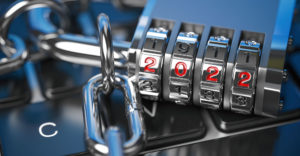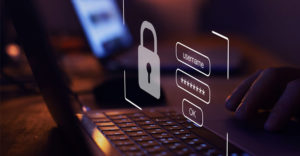Involvement in cryptocurrency has gone from being an activity relegated to tech savants and Silicon Valley intellectuals to an interest of the general public.
This growing level of interest has ushered in a call for increased security on cryptocurrency platforms.
Expectation of Security
With our lives being lived increasingly online, people have a higher expectation of tightened security measures to keep our personal information safe from prying eyes. While there can likely never be a perfectly secure online experience, a high data privacy and security level can be achieved.
These security concerns are shared by people looking to dip their toes into the cryptocurrency waters. For many newcomers to crypto investing, the learning curve can be steep. There may be hesitancy if people do not feel comfortable with the level of security on a given crypto platform.
Accordingly, there needs to be a level of trust built by the platforms to ease the minds of people just getting started in crypto.
Blockchain Technology Security
Cybercriminals, hackers, and scammers know no bounds when attempting to part a person from their money, and criminal interest in digital assets is no different.
Research conducted by Barracuda, a cloud-enabled security solutions company, revealed that approximately 7,000 people lost more than US$80 million due to crypto scams between October 2020 and March 2021. According to the Federal Trade Commission, this is a massive increase of 1,100 percent from the previous years.
Cryptocurrency operates on blockchain technology, which at its core is used to record financial exchanges without the need for third-party verification. The very essence of blockchain tech works to deter hackers and nefarious actors seeking to gain private information or steal digital assets.
Data added to the blockchain and encrypted is permanent and unchangeable. Even if someone were to gain access and change any information stored therein, the other records would remain intact. The compromised record could be identified and repaired. Thus, blockchain technology makes cryptocurrency investment exceedingly secure.
This security found in the blockchain does not say that crypto investors should rely on it entirely and discard any personal responsibility in protecting their information or digital money. Security and data protection need to be a marriage between the tools available and the user.
Mashael Al Sabah, a cybersecurity researcher at the Qatar Computing Research Institute, laid bare the security holes that could be found in the blockchain in a 2018 paper that she co-authored. The paper showed that by simply sifting through publicly available Bitcoin blockchain data and social media accounts, the real identities of crypto investors and account holders could be revealed.
So, while blockchain technology is not foolproof, it still stands to be game-changing in terms of securing data or financial information.
Security Is a Personal Responsibility
More than ever before, people understand the importance of protecting their private information and securing their financial assets.
Their initial hesitancy to try cryptocurrency may lie in a lack of understanding of the regulation behind the currency. With traditional banking, people better understand the security measures to protect their money. The waters get a bit muddied when it comes to cryptocurrencies.
Cryptocurrency platforms use some security methods that most regular internet users are familiar with, including two-factor authentication processes. This familiarity may contribute to false security in people new to crypto. There still needs to be personal responsibility when entering the crypto arena.
Users can protect themselves by:
- Not leaving cryptocurrency on exchanges. It can be tempting to leave all of your digital coinage in one place, ready for quick transactions, but this also leaves your crypto ripe for the picking by hackers.
- Not leaving crypto on local storage. Backing up crypto on local, private storage such as a hard drive, computer desktop, or phone can leave it open for being lost or stolen.
- Not losing or forgetting passwords. Remembering or saving passwords may sound like a given, but one may want to remember the story of Stefan Thomas, who owns 7,000 Bitcoins (valued at about $280 million at the time of this writing), but lost access to the digital fortune because he lost his password to his IronKey USB drive where he stored his Bitcoin.
- Using secure crypto platforms. Many cryptocurrency platforms or businesses accept crypto payments or provide crypto cashback on purchases. It behooves the user to do their research on any platform they utilize for cryptocurrency exchanges or transactions. Users should gravitate towards crypto platforms that have been tried, tested, and proven legitimate and secure.
Master of Your Own Data
With many data breaches making headlines, some experts are encouraging people to take control of their own data and turn the tables on data mining scammers.
Some have leveraged their interest in data and sold theirs in exchange for cryptocurrency. Many have started advocating for a return to decentralization of data and for people to harness the power of personal data ownership and value.
This concept, again, involves blockchain technology. Blockchain allows people to sell their personal data securely and keep records of each transaction.
Ownership of data creates security. When people have agency over their personal information and can use or exchange it as they wish, there is a strengthened feeling of security.
Crypto Security Standard
Cryptocurrency platforms that want to be considered top players in the crypto game need to alleviate the worries of crypto investors by taking necessary precautions to provide secure transactions.
They also need to play the game of the regulatory measures for crypto exchange, measures that are admittedly still in their infancy. The Cryptocurrency Security Standard (CCSS) has been established to set requirements for all cryptocurrency exchange platforms, apps, and storage solutions.
Cryptocurrency systems require the creation of keys/seeds, which should be kept confidential and should not be easily guessable for those intending to obtain access to crypto that they have no rights to.
Dual verification for crypto wallet access, reference, background checks, and redundant storage of keys and necessary access information also help keep an investor’s cryptocurrency secure.
As cryptocurrency investing and exchange grow in popularity and utilization, security concerns will likely increase as well. It will be the responsibility of the various cryptocurrency platforms to make security and data privacy a top priority as more people enter the crypto space looking to make their mark.

















































Social Media
See all Social Media